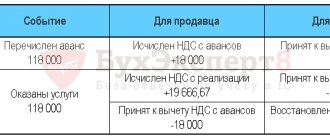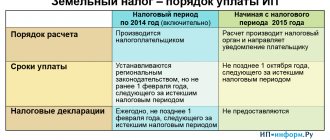Increases in excise taxes on fuel occur almost every year. This is a natural process that allows you to increase budget revenues due to the demand for these products. The increase in excise taxes on gasoline occurs due to the adoption of the law and its signing by the President. The adopted excise taxes on gasoline from January 1, 2021 affect the total cost of fuel. There are no plans yet to increase excise taxes on gasoline in 2021, but this is a temporary lull. The increase in excise taxes in 2019 is planned in several stages, approximately 5-10% until 2021. Knowing what excise tax on gasoline is provided from January 1, 2021, you can understand changes in prices on the market and predict its increase.
What is taxed and who must pay
According to Article 179 of the Tax Code of the Russian Federation, individual entrepreneurs and legal entities are recognized as excise tax payers.
In addition, other persons moving excisable goods across the border of the EAEU are required to pay excise tax. As for the objects of taxation, here it is worth referring to Article 182, which equates the following operations to them:
- Sales on the territory of our country of goods that are recognized as excisable. It is noteworthy that sales should also be understood as the free transfer of such products.
- Sales of confiscated excisable products.
- Transfer of excisable goods to the owners of the raw materials from which these goods were made, just like other persons. Objects of taxation can also include the receipt of excisable goods as payment for services for their production and the transfer of such products for processing.
- Transfer within the enterprise of manufactured excisable goods for further production of goods not subject to excise taxes. The exception is straight-run gasoline, which is intended for further use in the petrochemical industry.
- Transfer on the territory of our country of manufactured goods intended for one’s own needs, as well as transfer of such items to the authorized capital or as contributions. The transfer of goods when a person leaves the organization as a share is also subject to taxation.
- Import of similar products into the territory of the Russian Federation.
- Receiving straight-run gasoline, as well as posting it.
Total profit
This term refers to the total amount of profit that will be received by all participants in the gasoline production chain:
- oil exploration and production;
- transportation;
- refining at refineries;
- sales at gas stations.
Each enterprise includes profit in the final cost of its product, which is necessary for development and modernization. Profit is an important indicator of the effective operation of each enterprise involved in the process of producing gasoline.
These total costs account for about 23.3% in the cost of a liter of Russian gasoline.
If you divide the total profit into four known participants, it turns out that each of them will receive a net profit of 5-6%.
Regulations
The main regulatory act regulating issues related to excisable goods is the Tax Code of the Russian Federation, Chapter 22 “Excise taxes”.
This document defines excisable goods, taxpayers, objects of taxation, tax rates, and the tax base. In addition, the Tax Code describes cases in which taxpayers are exempt from paying excise duty, clarifies the mechanism for calculating tax in certain cases, and establishes conditions when a taxpayer can receive a tax deduction in connection with the sale of excisable products.
Chapter 22 is constantly updated in accordance with the introduced amendments, which allows the state to regulate prices for consumer products and the volume of their sales. In addition, changes to existing regulations can replenish the state budget.
Excise taxes on petroleum products from January 1, 2019
Products made from oil are classified as excisable goods. Therefore, their issue is subject to tax. Their distinctive feature is the complex chemical route of production. An indirect tax is imposed on any product made from oil. These are automobile oil, kerosene, distillers and more. In 2021, the level of excise tax on petroleum products provided for the previous year will remain. It is accrued when transporting finished products to your branch for sale, further processing or use for your own purposes. The formula by which the coefficient is calculated:
A = NB x NS – NV, where:
- A – excise tax;
- NB – tax base;
- NS – tax rate;
- NV – tax deduction.
The company engaged in production must calculate the excise tax on oil. Fiscal relief from the government is aimed at curbing market prices for gasoline and other products provided for the buyer.
Rates and base
Tax rates on excisable goods are determined by Article 193 of the Tax Code of the Russian Federation. In order to estimate the size of rates for the next three years, consider the following table.
| Product | 2017 (RUB/ton) | 2018 (RUB/ton) |
| Class 5 gasoline | 10 130 | 11 213 |
| Gasoline, below class 5 | 13 100 | 13 100 |
| Diesel fuel | 6800 | 7665 |
| Straight-run gasoline | 13 100 | 13 100 |
| Motor oils | 5400 | 5400 |
| Aviation kerosene | 2800 | 2800 |
Each of the excisable goods has its own characteristics when determining the tax base:
- If a product has a fixed tax rate, the base is determined as the volume of goods sold.
- If there is a percentage tax rate, the base is determined as the cost of products sold, excluding value added tax.
- For goods with combined tax rates, the base is determined as the volume of goods in kind when applying a flat rate and the estimated value of goods, calculated at maximum retail prices at an interest rate.
Profit received by an organization or entrepreneur that is not related to the sale of excisable goods should not be included in the tax base. If the taxpayer received profit from sales in foreign currency, it is necessary to apply the Central Bank rates that were in effect at the time of sale.
Calculation procedure
To calculate the excise tax, it is necessary to operate with data such as the tax rate for a certain period and the tax base. The tax base must be determined separately for each of the excisable goods.
Amount to be paid
According to the current edition of the Tax Code, in 2021 the rate on class 5 gasoline is 12,752 rubles per ton. The excise tax on gasoline of a lower class in 2021 will remain at the level of 13,100 rubles, in 2021 it will increase to 13,624 rubles, in 2022 - up to 14,169 rubles. This difference in price reflects government policy to encourage the use of more environmentally friendly fuels.
What formula is used to calculate
In order to calculate the amount of excise tax, you must apply the following formula:
∑Excise tax = Tax base * Rate
If we consider fuel products, then according to the table above, the base will be the sold volume, measured in tons. It is worth noting that in order to prevent double taxation (when purchasing raw materials and selling finished fuel products), manufacturers reduce the amount of excise tax by the corresponding difference. However, in some cases this cannot be done.
Examples
As a first example, let’s take an enterprise that sells AI-92 gasoline.
To produce fuel, gasoline of a lower class is used, namely AI-76, to which various additives are added. A batch of raw materials in the amount of 100 tons was purchased by the organization in 2007, when the rate was 2,657 rubles per ton. By producing 92 gasoline, the enterprise received 110 tons of fuel. The excise tax amount will be equal to:
110 tons * 13,100 = 1,441,000 rubles.
However, it is worth noting that this amount can be reduced by the amount of excise tax that was paid by him when purchasing raw materials:
100 tons * 2657 = 265,700 rubles.
As can be seen from the example, a large difference in rates for a period of 10 years will not allow reducing the price for the end consumer.
Another example will reflect the situation in the fuel market, which is characterized by the absence of a production license from one of the counterparties. Thus, an organization that produces fuel and does not have a special permit for this sells a large batch of 92 gasoline to another organization. As a result of the sale of 100 tons of fuel, the manufacturer is obliged to pay to the budget, given that the transaction takes place in 2021:
100 tons * 13,100 = 1,310,000 rubles.
In this case, due to the lack of permits, the manufacturer does not have the right to use the tax deduction, so he will pay the entire amount to the state.
Using the last example, it can be shown that the final excise tax payer is an ordinary consumer. Conventionally, we have three market participants: a manufacturer, a wholesaler and a retail gas station. Let's trace the path of 95 gasoline from the manufacturer to the driver refueling his car.
A fuel producing company sells 95 tons of gasoline to a wholesale organization. In this case, the transaction is subject to tax:
1 ton * 12,752 = 12 thousand 752 rubles.
The same amount of excise tax will appear in a transaction with a retail gas station. Ultimately, the retailer will include the amount of this excise tax in the price of gasoline per liter that the conditional buyer will buy.
Who is raising excise taxes on gasoline in Russia
Excise tax refers to an indirect tax that applies only to the production sector. The list of oil products is limited, but allows the state to regulate their production, sales and consumption. An increase in this payment starts a chain reaction that leads to an increase in prices in the market, even for food. Therefore, it is important for the government to maintain influence in this area to avoid sudden or rapid increases.
Any news about an increase in gasoline prices often leads to panic, because they account for 12% of the final price provided to the consumer. This is an indirect tax provided for by current legislation, which is sent to the federal budget. Payment is made by legal entities involved in the purchase of raw materials and the sale of finished products. But in fact, the end consumer pays the difference. The seller always includes any financial fluctuations in the final price.
The tax is provided for the sale of fuel. With its help, the Government regulates the circulation of gasoline in the country and shifts the price. This is usually done with the aim of increasing the flow of funds into the budget in order to reduce its deficit. This may also happen because the duty is used as a regulatory tool in the market.
The nuances of selling straight-run gasoline
Operations with straight-run gasoline require both the manufacturer and the buyer to pay excise tax. Organizations that have a license to produce and sell straight-run gasoline are governed by special rules.
If a straight-run gasoline producer has the appropriate certificate and can also prove that the fuel is produced for use in the petrochemical industry, he can receive a tax deduction. When transferring gasoline for further production within the enterprise, there is no need to pay tax. In such cases, an enterprise specializing in the production of straight-run gasoline puts a special mark in the documentation and is exempt from tax payments.
Payment mechanism
Excise taxes on gasoline are calculated and paid in a certain order. As already noted, the obligation to pay excise tax ultimately falls on the end consumer. In this regard, at all stages of fuel sales, each of the counterparties is obliged to calculate the amount of excise tax and include it in the cost of the product, thereby transferring this responsibility to the next link in the producer-consumer chain.
How to confirm your right to a tax deduction for excise taxes
Reducing the amount of excise duty payable by using the right to a tax deduction by a refiner of petroleum products is carried out on the basis of the following documents:
- a copy of the registration certificate of the person carrying out operations for refining oil and petroleum products;
- contract for the supply of petroleum raw materials on a property basis;
- agreement for the provision of services for the processing of petroleum raw materials;
- invoices issued by the supplier of petroleum raw materials;
- copies of documents confirming the transfer of petroleum raw materials for processing (invoice for the transfer of raw materials to production, limit cards, etc.). The form of the limit-fence card in form M-8 can be downloaded here ⇒ Limit-fence card;
- copies of documents on the sale of refined petroleum products.
To obtain a tax deduction, the taxpayer is required to provide the above documents along with the tax return within the prescribed period.
Deadlines and reporting
The tax period for excise tax on gasoline is a calendar month. If an obligation to pay excise duty arose in the past tax period, it must be transferred to the treasury no later than the 25th day of the current month.
Fuel excise tax reporting must be submitted to the Federal Tax Service on a monthly basis, with the last day of submission being the 25th day of the month following the reporting month. The declaration form is specified in Order ММВ-7-3/ dated 01/12/16. In addition, this order also contains information on the correct completion and execution of the declaration.
If you don't pay the excise tax
Taxes are obligatory payments of a participant in economic relations. Overdue excise duty on a car threatens the taxpayer with a fine. Moreover, it is formed if the company did not submit a declaration on time or submitted it later than the established time. In this case, the fine is 5% of the excise tax amount for the overdue month. The tax authority for such a violation fines from 1 thousand rubles to 30% of the amount of excise duty.
If the declaration is submitted on time, but payment is not received, the fine is up to 20% of the excise tax amount. If the taxpayer repeatedly violates payment deadlines for 1 reporting month, the fine increases to 40% of the excise tax.
Become an author
Become an expert










